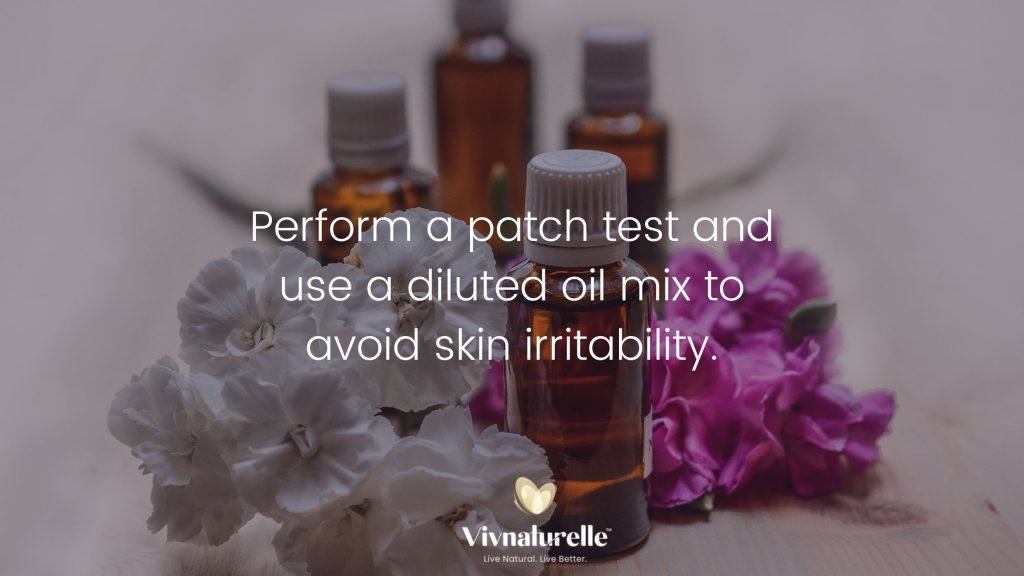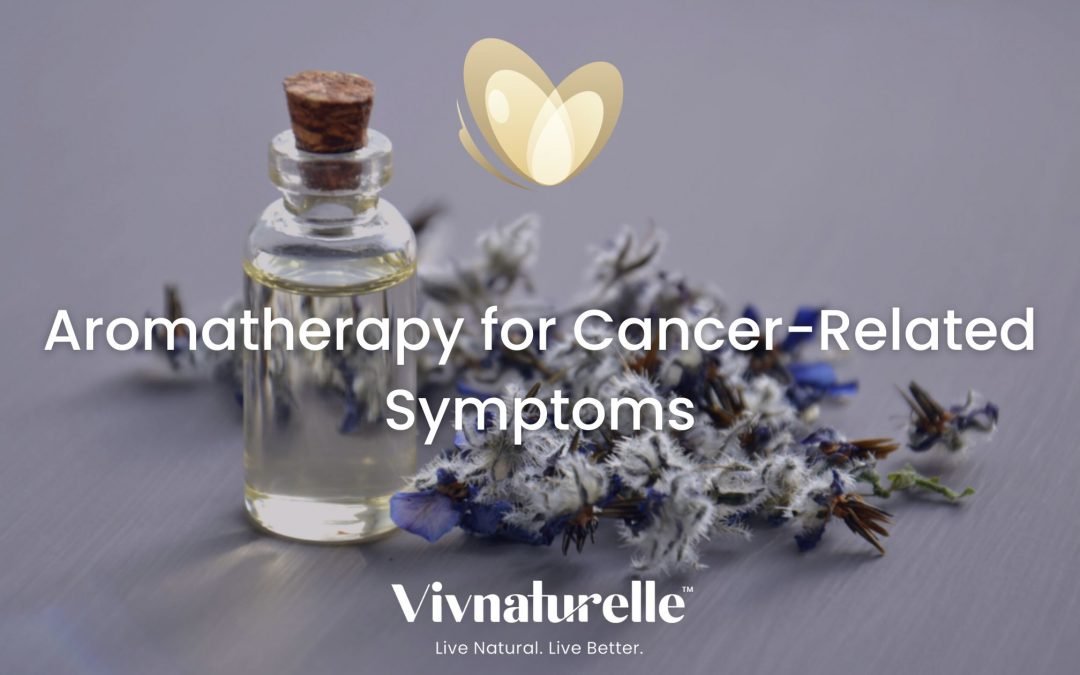Using aromatherapy for cancer-related symptoms can help to ease stress and promote relaxation in cancer patients. Aromatherapy is the therapeutic use of plant-derived essential oils to promote health and well-being. Some cancer patients report a decrease in side effects, such as nausea and vomiting. Aromatherapy is not a ‘cure’ for cancer or any other disease. It is a technique for alleviating anxiety and stress and promoting relaxation as a holistic care and a complementary therapy.

Does aromatherapy help cancer patients?
There are several studies on the effect of aromatherapy on nausea, vomiting, anxiety, and other health-related conditions in cancer patients. According to some studies, aromatherapy oil helps cancer patients by reducing the symptoms. Thus improving their mood and promoting restful sleep during chemotherapy.
Types of Oils to Use in Aromatherapy
Aromatherapy oils are fragrant essential oils extracted from various parts of plants. These plants include flowers, roots, leaves, and barks. Eucalyptus, lavender, chamomile, ylang-ylang, lemon, rosemary, peppermint, and jasmine are the most common oils.
Is using aromatherapy for cancer-related symptoms a safe practice?
Many cancer centres offer aromatherapy as a pleasant, cost-effective symptom management option. You can use it as a stand-alone treatment or with a therapeutic massage. Expert nurses, massage therapists, and also other complementary therapy professionals understand how to safely use aromatherapy. Using Aromatherapy helps patients with a high level of patient preference and compliance.
How do I use aromatherapy essential oils in cancer complementary therapy?
- Always dilute the essential oils before using them since it is usually of high concentration.
- Oils are frequently diluted with “carrier” oil. Carrier oils come from seeds, nuts, or trees. They aid in spreading the essential oil over a larger area of the skin. Examples of carrier oils include coconut oil, jojoba oil, sweet almond oil, and olive oil. Others include argan oil, grapeseed oil, avocado oil, and sunflower oil.

Dilution ratios of aromatherapy essential oils for adults:
- 2.5%: 15 drops essential oil + 6 teaspoons carrier oil
- 3%: 20 drops essential oil + 6 teaspoons carrier oil
- 5%: 30 drops essential oil + 6 teaspoons carrier oil
- 10%: 60 drops essential oil + 6 teaspoons carrier oil
For children:
- 0.5-1%: 3 to 6 drops essential oil + 6 teaspoons carrier oil
Always store carrier oils in a cool, dark place, preferably in the refrigerator. You should also keep them in a dark glass bottle. Here are a few steps to keep in mind when you use essential oils for complementary cancer therapy:
- Perform a patch test on a small area of your skin. Then wait 24 hours to ensure you do not have an allergic reaction. If the skin becomes red or swollen because of the oil, rinse thoroughly and discontinue use.
- Use a diluted oil mix to massage your skin. Some massage therapists will do 60-90 minutes sessions, but you can massage for a shorter time.
- You can use it by inhaling the essential oils using an oil burner or aromatherapy diffuser. This method is suitable for people who have skin irritation with the essential oils. Since the skin of cancer patients becomes very sensitive after chemotherapy or radiotherapy.
- A warm bath or boiled water with a few drops of essential oil will help you relax. It also helps to overcome sleeping problems and cancer therapy side effects.
- There are pulse points aromatherapy essential oils rollers that can be used on wrists, neck or behind ears.

Conclusion
Aromatherapy will improve cancer patients’ well-being and stimulate their senses to improve their quality of life. The benefits include a boost in their mood and an improvement in their health. The feeling that they are taking care of themselves makes it worthwhile. Remember, as each person’s body chemistry is unique, aromatherapy oil works differently for each individual. As a result, it may take time for your symptoms to improve. Always consult your oncologist before using essential oil during cancer treatment. Certain oils may interact with chemotherapies and cause other complications.
You can read more about what Cancer Research UK says about it, as well as National Cancer Institute and this article.


